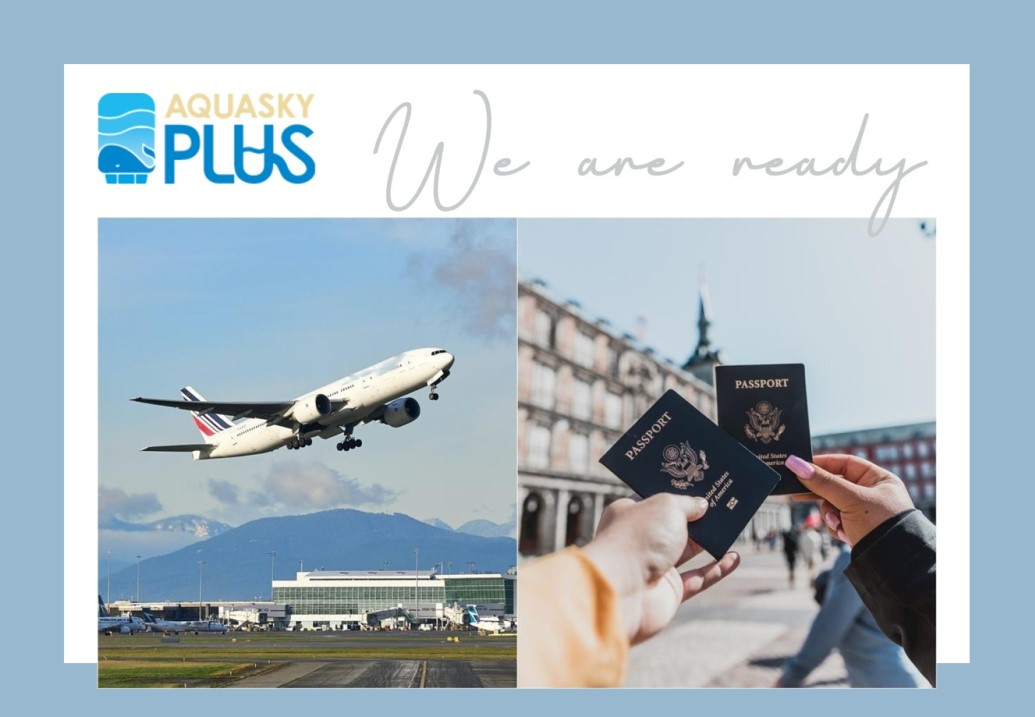Taiwan set to ditch quarantine restrictions for arrivals |Aquasky
The border reopened!Taiwan set to ditch quarantine restrictions for arrivals.
Beginning Oct. 13, travelers will no longer have to undergo a three-day quarantine upon arrival; instead, the self-initiated epidemic prevention will last for 7 days.

Canceling mandatory deep-throat saliva PCR tests upon arrival.
Instead, each arriving visitor will be given four rapid antigen test kits, but will not be required to perform a test on-site. Bans on tour groups will be lifted and entry for tourists from visa-waiver countries will be resumed. The opening of borders to travelers from countries not granted visa-free treatment. In addition, inbound passengers who are asymptomatic can take all forms of public transportation.
Adjustments to related plans are listed below.
I. Only seven-day self-initiated epidemic prevention will be required.
II. Rapid testing using at-home rapid test kits:
A. Four rapid test kits will be given to arrivals aged 2 and older by workers at international airports/ports upon arrival.
B. When to use rapid tests:
1. On the day of arrival or the first day of the self-initiated epidemic prevention period.
2. During the self-initiated epidemic prevention period, a negative result from an at-home rapid test taken within two days is required before a traveler goes out.
3. Symptoms develop during the self-initiated epidemic prevention period.
C. In consideration of the age limit on who can use at-home rapid test kits, children under two years of age will not be required to take rapid tests during the self-initiated epidemic prevention period.
III. Epidemic prevention rules to follow during the seven-day self-initiated epidemic prevention period:
A. In principle, an arrival should stay at home or a residence of a friend or family member or a hotel room that meets the requirement of "one person per room" (with a private bathroom) in the self-initiated epidemic prevention period.
B. During the self-initiated epidemic prevention period, arriving travelers should avoid coming into contact with persons who have high risk of developing severe COVID-19 (including elderly people 65 and older, children under 6, and individuals who are immunocompromised or have a weak immune system).
C. During the self-initiated epidemic prevention period, arriving travelers should rest at home if they experience symptoms. If they don't experience symptoms, a negative result from an at-home rapid test taken within two days is required before they go out, go to work, or attend school.
D. Arriving travelers can dine alone or with specific persons in a separate space in a restaurant if they need to eat. They should immediately put on a mask when they leave their seat or finish eating. Masks can be temporarily removed when dining and should be put on after finishing dining.
E. Travelers with COVID-19 who have mild symptoms can receive home care at a quarantine hotel or the place where they undergo self-initiated epidemic prevention (general hotel not included).
F. Arriving travelers cannot visit or stay with a hospitalized individual in a hospital. Non-urgent medical services or examinations should be postponed. Arriving travelers should avoid going to long-term care facilities.
For your reference- Taichung hotel:
* Windsor Hotel https://www.windsortaiwan.com/en
* Howard Hotel https://www.howard-hotels.com.tw/en_US/HotelBusiness/106
* Reve Hotel https://hotelreve.ezhotel.com.tw/1